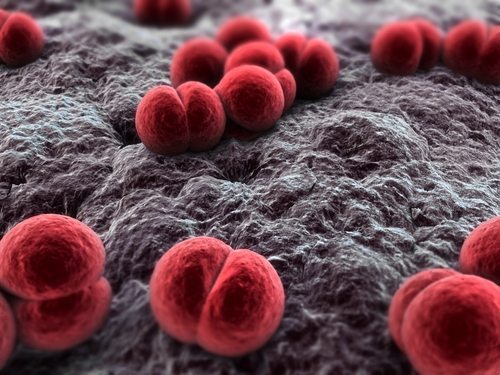Highly Contagious Strain of Meningitis Targets Men Who Have Sex With Men in NYC
A highly contagious strain of meningitis that has struck 22 men in New York City in the last three years, killing seven of them, has public health experts scratching their heads and looking for ways to get as many gay men vaccinated as possible.

A highly contagious strain of meningitis that has struck 22 men in New York City in the last three years, killing seven of them, has public health experts scratching their heads and looking for ways to get as many gay men vaccinated as possible.
Meningitis is a disease marked by the inflammation of the protective membranes covering the brain and spinal cord known as the meninges. The inflammation is usually caused by an infection of the fluid surrounding the brain and spinal cord. The infection can be the result of bacteria, a virus, a parasite, or a fungus. This outbreak is caused by bacteria that live in a person’s nose or mouth. It can be spread through kissing, sneezing, or sharing a spoon or cigarette. It is not as easy to spread as a cold or the flu but it is not a sexually transmitted disease, which is why public health experts do not quite understand why it is targeting gay men.
The current strain of bacterial meningitis was first detected among drug users in Brooklyn in 2006. In that outbreak, 23 people were infected and seven died. The city conducted a vaccination drive at drug treatment centers and soup kitchens, which seemed to work as there were no additional cases for three years. Then there was one case in 2010, four in 2011, 13 in 2012, and four so far this year. All of the cases were among gay or bisexual men, and 12 of those infected were HIV-positive. (There was one additional case in a man from upstate New York who came to the city frequently. A case in Los Angeles turned out not to be the same strain.) Dr. Jay Varma, the city’s deputy health commissioner for disease control told the New York Times, “We don’t have any evidence that it’s different in some biological way, we just know that it’s different. And what is concerning is that it is largely restricted to men who have sex with men. So we don’t really understand why that is.”
Though potentially deadly, bacterial meningitis is curable with antibiotics if caught early enough. Unfortunately, the symptoms, which include sudden onset of fever, headache, and a stiff neck, are often mistaken by individuals for something that is not serious and they don’t seek medical attention soon enough. The good news is that the vaccine works within seven to ten days and protects individuals for up to five years. Widespread vaccination is important because “herd immunity” will protect the community, even those who do not get vaccinated.
Vaccinations in New York City are up, with over 10,000 people receiving one this year. This weekend, the New York Times profiled one of the more unorthodox vaccine distribution programs in the city. Demetre Daskalakis, a doctor, advocate, and gay man, sets up shop in after-hours gay clubs offering free vaccines to anyone wants one. The Times joined him at Paddles, in Chelsea. His presence at the club was promoted through fliers by Gay Men’s Health Crisis, and patrons were reminded every hour or so by the club’s owner that they should see the doctor at the front of the room. Dr. Daskalakis is not affiliated with the health department, though he says that his colleagues there “love, love, love” what he’s doing and they do provide him with free vials of the vaccine. The health department has been less successful with its own outreach in gay clubs. (As the Times put it, people go to clubs to have fun, not be reminded there’s a deadly disease going around.) Dr. Daskalakis, however, is more effective perhaps because he does what he can to fit into the scene; at a house party in Brooklyn where he was offering vaccines a few weeks ago he dressed as a blonde nurse.
Though the infection is curable with antibiotics and preventable with vaccination,l its presence in the gay club scene in New York City is reminding many people of the early days of the HIV/AIDS crisis. As one of the club patrons at Paddles told the New York Times, “I feel like it’s the next narrative on from HIV, ‘Gay something happens in New York City gay spots.’”
